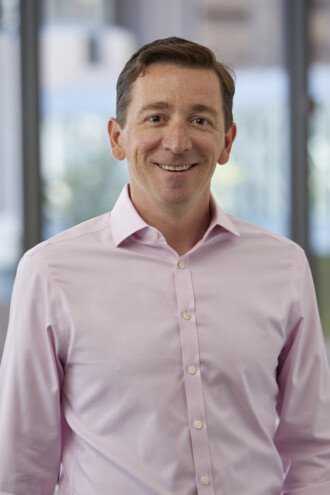What if you had the data to give you the best surgeon in your area for your specific procedure? It could change the game by improving the outcomes and maximizing the resources employers and other payers use to subsidize the care.
Dallas-based Employer Direct Healthcare is changing how surgeries are booked and paid for, and the powers that be are taking notice. A $92 million investment in December from global software investor Insight Partners gave the 13-year-old company a $1 billion valuation. The sizable assessment reflects the unsustainable increase in healthcare spending and the promise EDH provides for those who pay for healthcare, mainly self-funded employers.
Addressing Rising Surgery Costs
Here is the problem they want to address: Just one percent of people account for one-third of all healthcare costs, and 5 percent of people account for 60 percent of costs. The largest categories for big spending? Surgery, cancer care, and specialty pharmacy. EDH launched a product meant to use data to address surgery costs by steering patients toward the best surgeons in that specific surgery, reducing errors and potential future expenses. The company will soon launch a similar program for cancer care.
EDH serves companies with more than 1,000 employees and counts two dozen Fortune 500 employers and three dozen public sector employers representing four million people nationwide. The cities of Fort Worth and Grand Prairie, Fort Bend ISD, and Autozone are among EDH’s clients who use its SurgeryPlus program.
Most insurers have some form of centers of excellence program to designate a combination of below-average costs and above-average quality, but the health plans rarely incentivize or steer the patients toward those programs, meaning employers don’t have significant savings. Even if they did steer employees to those centers, the plans’ criteria for a center of excellence is usually an average of all operations and procedures and lacks the granular data needed to make sure that an individual is heading to the surgeon who is best at their specific surgery. Large insurers’ centers of excellence use criteria relative to a national average rather than an individual market, which can vary widely from one region to another.
EDH works hard to build a database of extensive cost information for individual markets to make a narrow network for employers with employees in that region. Additionally, EDH gathers data on specific operations to direct patients to the best physician for their unique surgery who focuses on that operation or procedure. EDH crunches the numbers and visits physician offices when building its narrow network, factoring in specialization, training, quality standards, and outcomes from various data sources to create a physician profile.
“When you do that, you can dramatically reduce bad outcomes,” says EDH CEO John Zutter. “We see about half a percent complication rate consistently, which is 90 percent less than the industry. It comes down to finding the doctors that are specialists and helping people make better decisions.”

By diving deep into everything from outcomes to bedside manner and giving employers information that enables them to pick with whom they want to contract for surgeries, it inserts competition and market dynamics into an industry that lacks it. “We can extract a lower reimbursement rate by inserting competitive dynamics into the marketplace,” says Zutter. “We have tried to take a pragmatic innovation approach versus a disruptive innovation approach. I don’t need to reinvent the wheel; I need to optimize it.”
EDH’s process has identified over 3,000 surgeons and oncologists at more than 500 facilities across 157 regions nationwide. Since its founding, EDH has facilitated more than 43,000 surgeries, reducing the operations costs by an average of $4,000 per surgery per member, with employers saving an average of $20,000 per procedure and passing savings on to their employees. During that time, EDH clients saved about $700 million, or a 2 percent reduction in healthcare costs for clients.
“Partnering with EDH has yielded very positive outcomes for our AutoZoners, and they often share with us their wonderful experiences with SurgeryPlus,” said Matt Harmon, VP of Compensation, Benefits and HRIS, Customer Satisfaction at AutoZone. “EDH helps to ensure that we’re able to provide access to high-quality, affordable surgical care for our AutoZoners across the U.S.”
Next Up? Cancer
Moving forward, EDH is applying the same logic to cancer care, which is a more complex task. Surgery is often a one-time operation with a clear recovery and physical therapy plan. Cancer care often occurs over months or years and battles an ever-adapting disease that constantly threatens to return in another form or organ. EDH’s Cancer Care Direct program utilizes an oncology nurse to provide concierge navigation for patients to help them understand and translate what their care teams tell them.
Zutter says EDH, which has grown to 500 employees and doubled in size every year, is the best fit for the costly but not extremely rare diagnoses. Some conditions will require the Mayo and Cleveland Clinics of the world, but for the expensive but more common procedures like a knee replacement or shoulder surgery, EDH’s narrow network can mean significant savings, especially when used at scale. These savings are essential for EDH, which is paid a percentage of savings it finds for clients.
“We try and create a network that consists of local outpatient care when appropriate, local inpatient specialty care when necessary, and the safety of the national institutes for that complex, rare condition where you need to be at that place that sees the condition in a way that nobody else knows.”
EDH began by working directly with employers but has more recently begun partnering with large insurers that allow their employer clients to use EDH’s narrow network for surgery. The partnership is “substantially reducing the contracting friction for employers and laying the groundwork for a much more integrated model and member experience.”
CEO John Zutter’s Journey
Zutter’s path to healthcare services is a meandering one that began in finance with JP Morgan, where he focused on the subprime market for autos and mortgages. After a stop at Santander, he took a position with Tom Dundon’s family office, which had invested in EDH. He joined the board of the company and transitioned to CEO in 2016.
The company was in turn-around mode, but the market moved in EDH’s direction as Zutter worked on operations and sales. Rising costs pushed employers to look at healthcare spending more closely, demanding greater transparency and accountability. As corporations focus on profitability over growth, healthcare spending is an opportunity to save.
With the recent investment from Insight Partners, Zutter has been busy growing the C-suite and leadership team and bullishly looking ahead to greater integration with the major players in healthcare. EDH has picked up leaders from established powers in the healthcare space, like One Medical, Hinge Health, Carrot Fertility, Aetna, and CVS. The company added a chief growth officer, chief product officer, chief client officer, chief marketing officer, and a head of communications, among other roles. “The last few years, it’s been about how you grow a world-class team,” Zutter says. “At this point, I’d take our chances against any team of any company in the healthcare space within 20 times our size.”
Author







